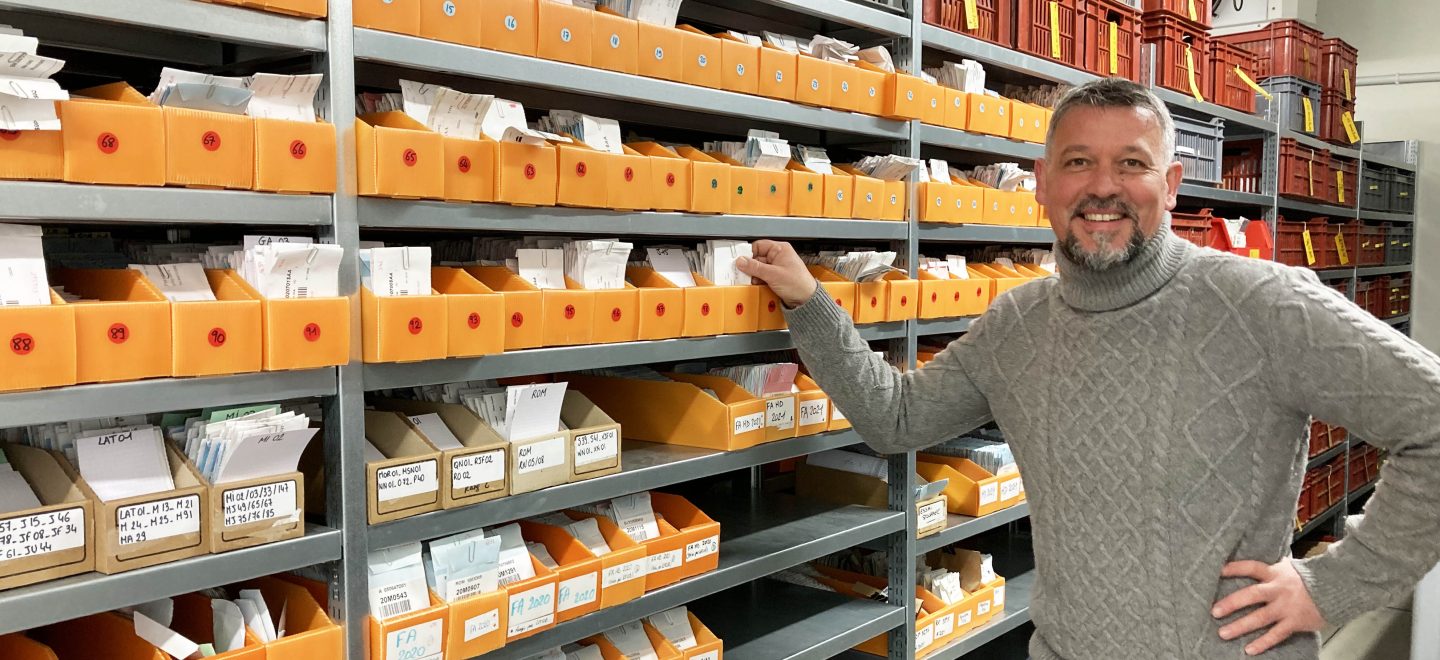As everyone knows, all vegetables start out as a seed, bulb or plant. But do you know where and how those of our Prince de Bretagne partner growers are produced? In order to answer these questions, we met with David Esnault, Business Development and Sales Manager at OBS (Organisation Bretonne de Sélection) in Plougoulm, Finistère, only a few kilometres from Pouliquen’s head office.
Why was OBS created?
OBS was founded in 1970 as an initiative of the farmers of the Breton agricultural co-ops (SICA Saint-Pol-de Léon; La Bretonne; Les Maraîchers d’Armor; and Terres de Saint-Malo) to develop a genetics that corresponds to their specific needs, their unique terroir, social trends, and their market. OBS is still managed by producers today. With a thorough understanding of local concerns, the organisation contributes to the development of the 1,871 farms grouped within CERAFEL (Prince de Bretagne).
How is OBS organised?
The role of OBS is twofold: it breeds varieties and also produces certified plants and seeds.
The organisation creates varieties and produces seeds in response to farmers’ strategic direction, thereby ensuring their genetic independence. Although the cauliflower was the focus of research in the early 1970s, today OBS also works on Romanesco, artichokes, Coco de Paimpol beans, shallots, Roscoff onions, Chinese artichokes, turnip-rooted chervil, purple carrots, red kuri squash and ornamental plants such as Agapanthus.
OBS controls every step, from seed research through to marketing, in order to ensure the availability of both seeds and plants at the best possible price.
What resources does OBS have?
With an equivalent of 35 full-time positions, the OBS staff includes a phytopathologist, researchers and breeders. This team has access to 8 hectares of indoor growing space and 30 hectares of fields. The organisation also has an in-vitro culture lab, a seed treatment facility, and a 150-hive apiary, and is certified to produce organic seeds.
What issues are addressed by the work of OBS?
The creation of new vegetable varieties responds to both economic and ecological challenges. In economic terms, for farmers’ businesses—and therefore the Breton vegetable-production sector—to be successful, they require regular access to sufficient volumes of high-quality product in order to increase their competitiveness. Ecologically-speaking, vegetable farmers today must meet many environmental challenges: reducing their environmental footprint; responding to changing legislation and the gradual phasing-out of many phytosanitary products; and adapting to climate change. Today, extreme weather conditions are much more common. For example, there may be long dry spells followed by heavy rains, as well as cold snaps late in the season. The region has also experienced heat waves. All of these elements represent a significant challenge for farmers.
What is the production cycle for a new vegetable variety?
Breeding a new variety is a long-term process. It takes between 10 and 15 years from when the specifications are drawn up for the first plants to be certified. Once the specifications have been written up and the objectives set (for example, creating a mildew-resistant shallot), OBS begins the genetic work of manually crossing selected varieties. This process takes from 6 to 8 years. The next stage is the creation cycle, which requires six more years of work. After this, three years of propagation take place before the new variety can be made available to farmers. This long time scale is why it is important for OBS to be able to predict environmental and social changes, as well as the evolution of farming practices. We have to make sure that a variety which will be become available 10 or 15 years from now will still meet a real need on the part of farmers.
How do you ensure that a new variety is of interest before it is put on the market?
For each new variety, we create a network of both organic and conventional farmers who are representative of the region and have varied pedoclimatic conditions and agricultural practices. In this way, we obtain a direct and continuous response from a group of farmers with very diverse profiles and expectations.
In closing, could you describe your role at OBS?
I’m the Business Development and Sales Manager. I manage the network of farmers and ensure communications between the various Prince de Bretagne experimental stations (CATÉ for conventional farming and Terre d’Essais for organic), the co-ops, the farmers and our customers.
I’m also responsible for certified plant production; in particular alliums, onions and shallots. As part of this role, I establish contracts with propagating farmers. I set the objectives, which varieties are to be propagated, the length of the contract, etc. I also manage the network for this activity and ensure that the plants meet certification requirements. It’s a technical, varied and fascinating profession!
